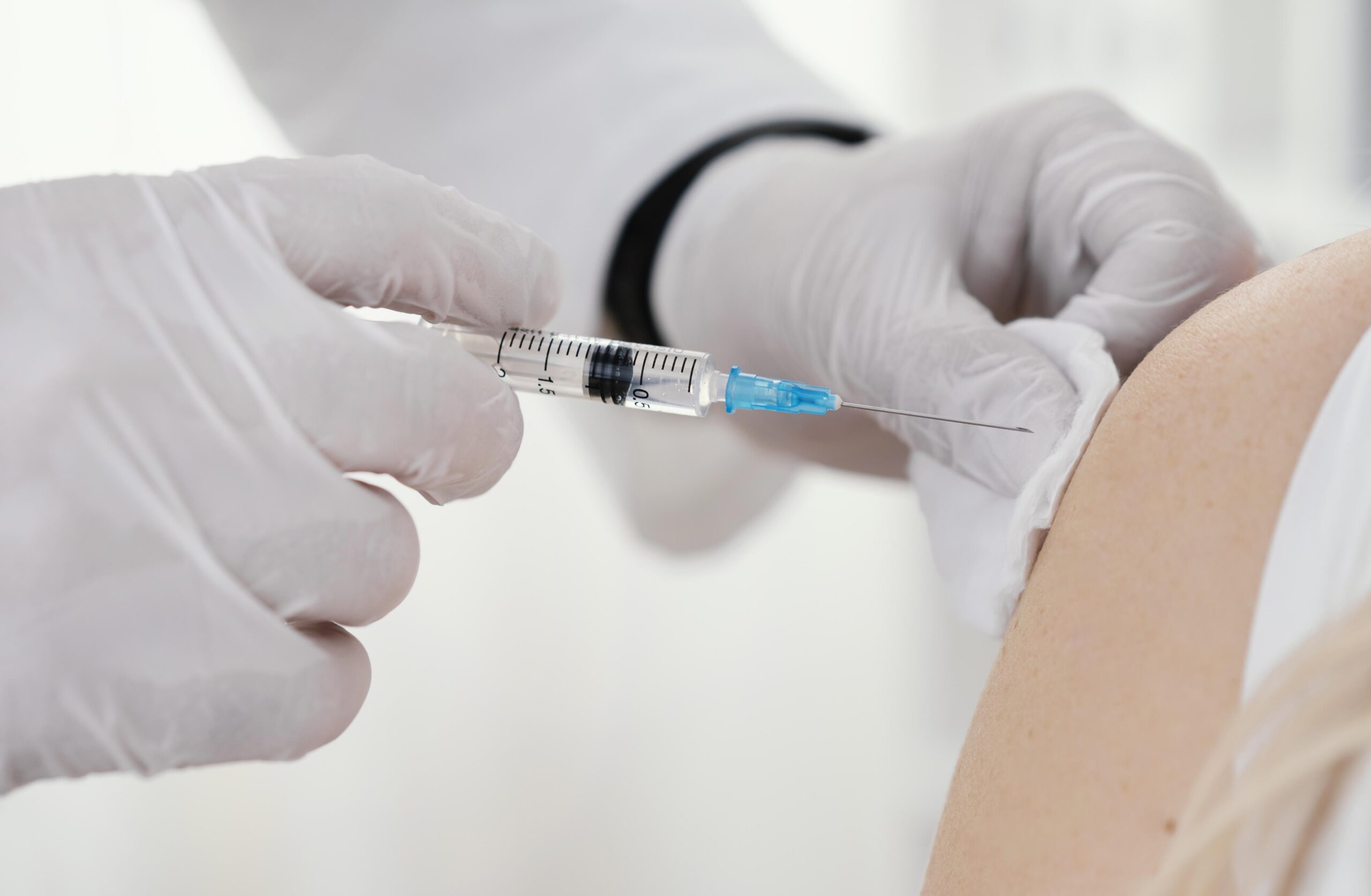Dengue fever can be recurrent. Can we prevent it ?
Dengue fever is a contagious disease caused by bites from female Aedes Aegypti mosquitoes. When mosquitoes bite people with dengue fever, especially during the high fever period, the Dengue virus will reproduce inside the mosquitoes which takes around 8 – 10 days and ready to spread to other victims through biting. This disease can occur in all ages, especially in children and usually spreads in rainy season, however, it can be found throughout the year.
Dr. Sirichai Saengngammongkhol, our specialist in pulmonary medicine and pulmonary critical care medicine, intensive and critical care medicine at Bangkok Hospital Hua Hin, shares that the symptoms of dengue fever will show after receiving the Dengue virus through mosquito bites. The incubation period is around 3 – 14 days before the symptoms start which last for 4 – 7 days. The high-graded fever of 39 – 40 Celsius often lasts for 2 – 7 days along symptoms of nausea, vomiting, loss of appetite, redness of the face, red spots on the skin, nose or gum bleeding, passing black stool and enlarged and tender liver at the upper right part of abdomen. The cold symptoms such as coughing, sore throat and nasal congestion may also be present.
 The dangerous signs of Dengue fever include stupor, lethargy, restlessness, cold hands and feet, rapid pulse, sudden abdominal pain, thirst, less urine, nosebleeds, vomiting blood and passing black stool. When having a high fever, basic patient care includes body sponge to reduce fever and taking antipyretics such as paracetamol. Hepatitis is often found in dengue fever so the use of Paracetamol should be monitored. The use of aspirin or ibuprofen is not recommended due to the risks of causing low platelets and bleeding. Patients are required to drink plenty of water or electrolyte drinks to prevent dehydration. The diet should be soft and deep colored food should be avoided as it may cause confusion if bloody stool ever occurs. Hospitalization is required if there are dangerous signs
Dengue fever is considered an endemic disease. Currently, Thailand has dengue vaccine that works well for ones who are 9 – 45 years of age and have a history of dengue fever. There are 4 strains of dengue viruses in Thailand and when we are infected with one particular strain, the body will build a life-long immunity for that strain but cannot protect other strains. Hence, we can still get infected with the remaining strains. According to the studies, re-infection or second infection of dengue fever will have more severe symptoms in 80 – 90 percent of the cases.
The dangerous signs of Dengue fever include stupor, lethargy, restlessness, cold hands and feet, rapid pulse, sudden abdominal pain, thirst, less urine, nosebleeds, vomiting blood and passing black stool. When having a high fever, basic patient care includes body sponge to reduce fever and taking antipyretics such as paracetamol. Hepatitis is often found in dengue fever so the use of Paracetamol should be monitored. The use of aspirin or ibuprofen is not recommended due to the risks of causing low platelets and bleeding. Patients are required to drink plenty of water or electrolyte drinks to prevent dehydration. The diet should be soft and deep colored food should be avoided as it may cause confusion if bloody stool ever occurs. Hospitalization is required if there are dangerous signs
Dengue fever is considered an endemic disease. Currently, Thailand has dengue vaccine that works well for ones who are 9 – 45 years of age and have a history of dengue fever. There are 4 strains of dengue viruses in Thailand and when we are infected with one particular strain, the body will build a life-long immunity for that strain but cannot protect other strains. Hence, we can still get infected with the remaining strains. According to the studies, re-infection or second infection of dengue fever will have more severe symptoms in 80 – 90 percent of the cases.
 “For those with a history of dengue fever can be vaccinated with dengue vaccine. There are 3 injections for every 6-month interval which will help to prevent all 4 strains of dengue viruses. The vaccination is 65.6 per cent effective in prevention but 93.2 per cent in prevention of serious complications and lessen the hospitalization rate. This vaccine may cause some side effects which are pain in the injected area and headache, body aches or fever in some cases.”, Dr. Sirichai said.
The treatment for Dengue fever is considered symptomatic treatment. In severe cases, it can be life-threatening. So, the best way is “PREVENTION“. It is important to prevent mosquitoes bite, especially during the daytime. Moreover, we should get rid of the mosquito breeding sites by closing the water storage container, put sand or fish to eliminate larvae in open water storage containers to prevent mosquitoes from laying eggs and keep destroying or overturning water containers that are not used.
*********************************************************************************
For more information – appointment:
Tel. 032-616-880 Out-patient Department, ground floor (7.00 – 19.00 hrs.)
Tel. 032-616-800 Call Center, Bangkok Hospital Hua Hin
Package & Promotion, contact Line: @bangkokhuahin or https://lin.ee/5tso2l0
“For those with a history of dengue fever can be vaccinated with dengue vaccine. There are 3 injections for every 6-month interval which will help to prevent all 4 strains of dengue viruses. The vaccination is 65.6 per cent effective in prevention but 93.2 per cent in prevention of serious complications and lessen the hospitalization rate. This vaccine may cause some side effects which are pain in the injected area and headache, body aches or fever in some cases.”, Dr. Sirichai said.
The treatment for Dengue fever is considered symptomatic treatment. In severe cases, it can be life-threatening. So, the best way is “PREVENTION“. It is important to prevent mosquitoes bite, especially during the daytime. Moreover, we should get rid of the mosquito breeding sites by closing the water storage container, put sand or fish to eliminate larvae in open water storage containers to prevent mosquitoes from laying eggs and keep destroying or overturning water containers that are not used.
*********************************************************************************
For more information – appointment:
Tel. 032-616-880 Out-patient Department, ground floor (7.00 – 19.00 hrs.)
Tel. 032-616-800 Call Center, Bangkok Hospital Hua Hin
Package & Promotion, contact Line: @bangkokhuahin or https://lin.ee/5tso2l0
 The dangerous signs of Dengue fever include stupor, lethargy, restlessness, cold hands and feet, rapid pulse, sudden abdominal pain, thirst, less urine, nosebleeds, vomiting blood and passing black stool. When having a high fever, basic patient care includes body sponge to reduce fever and taking antipyretics such as paracetamol. Hepatitis is often found in dengue fever so the use of Paracetamol should be monitored. The use of aspirin or ibuprofen is not recommended due to the risks of causing low platelets and bleeding. Patients are required to drink plenty of water or electrolyte drinks to prevent dehydration. The diet should be soft and deep colored food should be avoided as it may cause confusion if bloody stool ever occurs. Hospitalization is required if there are dangerous signs
Dengue fever is considered an endemic disease. Currently, Thailand has dengue vaccine that works well for ones who are 9 – 45 years of age and have a history of dengue fever. There are 4 strains of dengue viruses in Thailand and when we are infected with one particular strain, the body will build a life-long immunity for that strain but cannot protect other strains. Hence, we can still get infected with the remaining strains. According to the studies, re-infection or second infection of dengue fever will have more severe symptoms in 80 – 90 percent of the cases.
The dangerous signs of Dengue fever include stupor, lethargy, restlessness, cold hands and feet, rapid pulse, sudden abdominal pain, thirst, less urine, nosebleeds, vomiting blood and passing black stool. When having a high fever, basic patient care includes body sponge to reduce fever and taking antipyretics such as paracetamol. Hepatitis is often found in dengue fever so the use of Paracetamol should be monitored. The use of aspirin or ibuprofen is not recommended due to the risks of causing low platelets and bleeding. Patients are required to drink plenty of water or electrolyte drinks to prevent dehydration. The diet should be soft and deep colored food should be avoided as it may cause confusion if bloody stool ever occurs. Hospitalization is required if there are dangerous signs
Dengue fever is considered an endemic disease. Currently, Thailand has dengue vaccine that works well for ones who are 9 – 45 years of age and have a history of dengue fever. There are 4 strains of dengue viruses in Thailand and when we are infected with one particular strain, the body will build a life-long immunity for that strain but cannot protect other strains. Hence, we can still get infected with the remaining strains. According to the studies, re-infection or second infection of dengue fever will have more severe symptoms in 80 – 90 percent of the cases.
 “For those with a history of dengue fever can be vaccinated with dengue vaccine. There are 3 injections for every 6-month interval which will help to prevent all 4 strains of dengue viruses. The vaccination is 65.6 per cent effective in prevention but 93.2 per cent in prevention of serious complications and lessen the hospitalization rate. This vaccine may cause some side effects which are pain in the injected area and headache, body aches or fever in some cases.”, Dr. Sirichai said.
The treatment for Dengue fever is considered symptomatic treatment. In severe cases, it can be life-threatening. So, the best way is “PREVENTION“. It is important to prevent mosquitoes bite, especially during the daytime. Moreover, we should get rid of the mosquito breeding sites by closing the water storage container, put sand or fish to eliminate larvae in open water storage containers to prevent mosquitoes from laying eggs and keep destroying or overturning water containers that are not used.
*********************************************************************************
For more information – appointment:
Tel. 032-616-880 Out-patient Department, ground floor (7.00 – 19.00 hrs.)
Tel. 032-616-800 Call Center, Bangkok Hospital Hua Hin
Package & Promotion, contact Line: @bangkokhuahin or https://lin.ee/5tso2l0
“For those with a history of dengue fever can be vaccinated with dengue vaccine. There are 3 injections for every 6-month interval which will help to prevent all 4 strains of dengue viruses. The vaccination is 65.6 per cent effective in prevention but 93.2 per cent in prevention of serious complications and lessen the hospitalization rate. This vaccine may cause some side effects which are pain in the injected area and headache, body aches or fever in some cases.”, Dr. Sirichai said.
The treatment for Dengue fever is considered symptomatic treatment. In severe cases, it can be life-threatening. So, the best way is “PREVENTION“. It is important to prevent mosquitoes bite, especially during the daytime. Moreover, we should get rid of the mosquito breeding sites by closing the water storage container, put sand or fish to eliminate larvae in open water storage containers to prevent mosquitoes from laying eggs and keep destroying or overturning water containers that are not used.
*********************************************************************************
For more information – appointment:
Tel. 032-616-880 Out-patient Department, ground floor (7.00 – 19.00 hrs.)
Tel. 032-616-800 Call Center, Bangkok Hospital Hua Hin
Package & Promotion, contact Line: @bangkokhuahin or https://lin.ee/5tso2l0